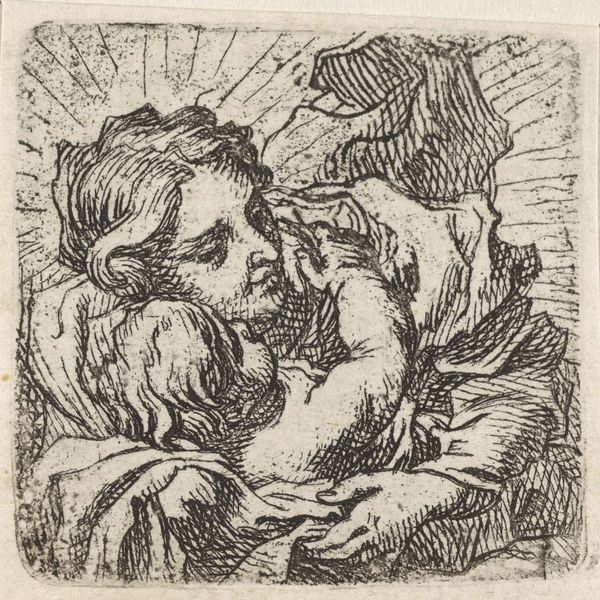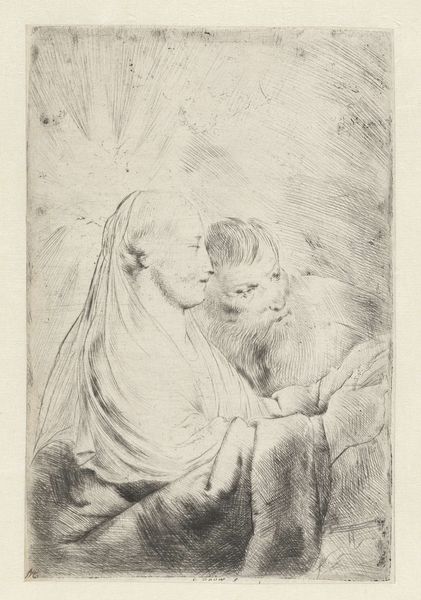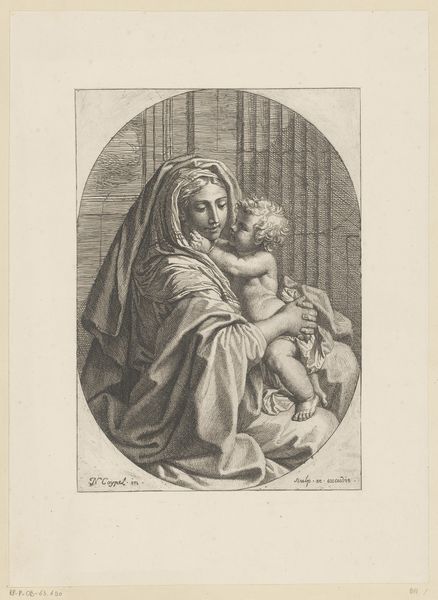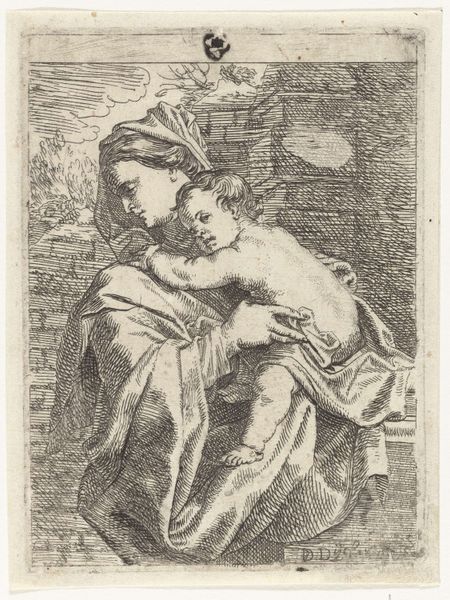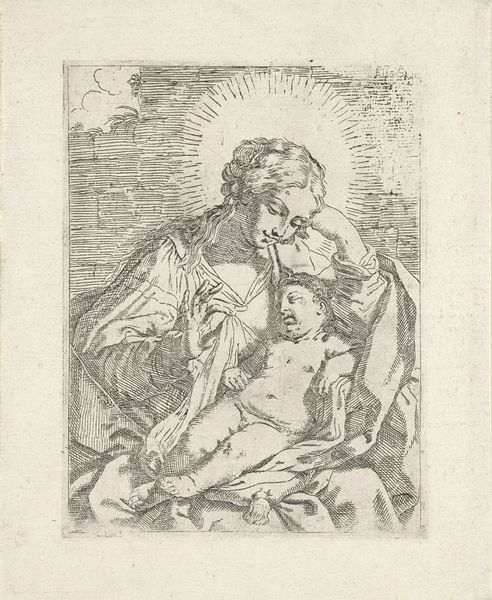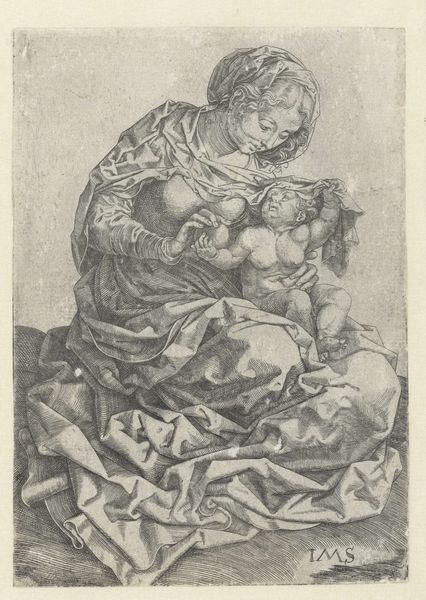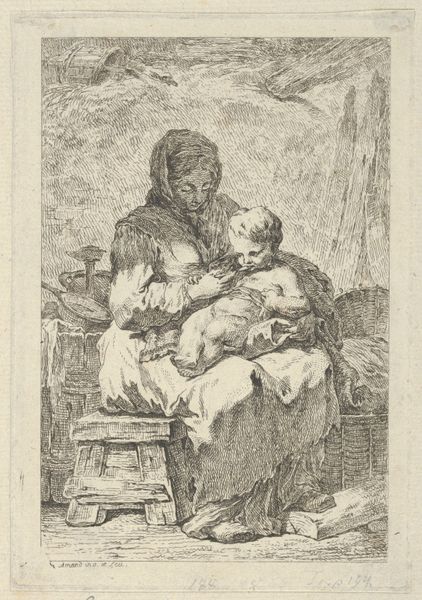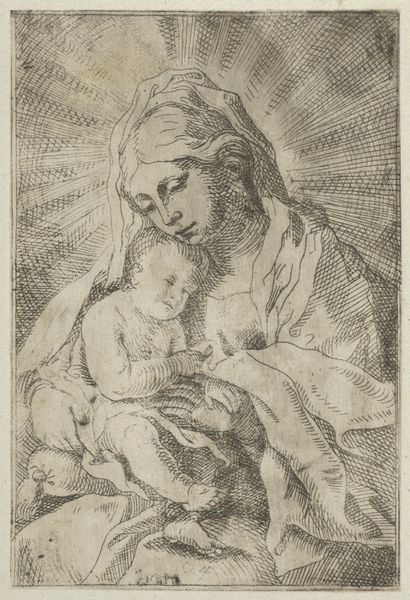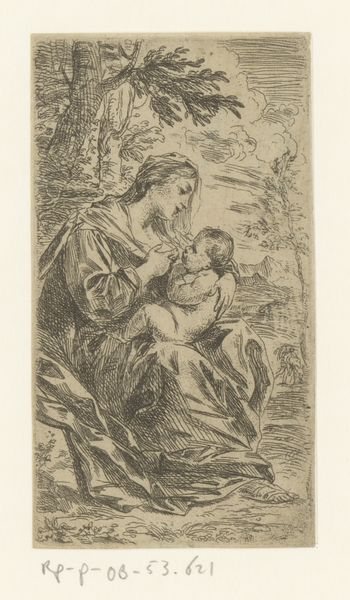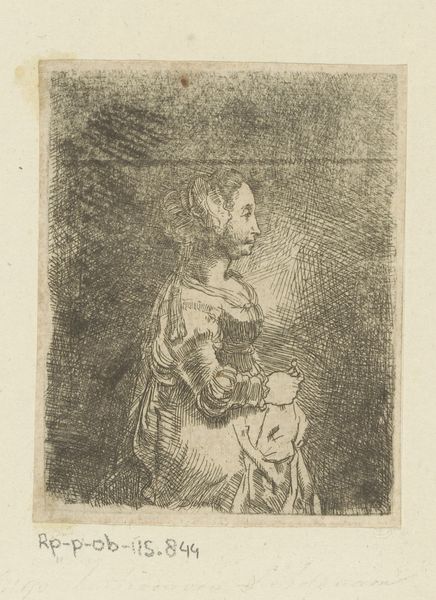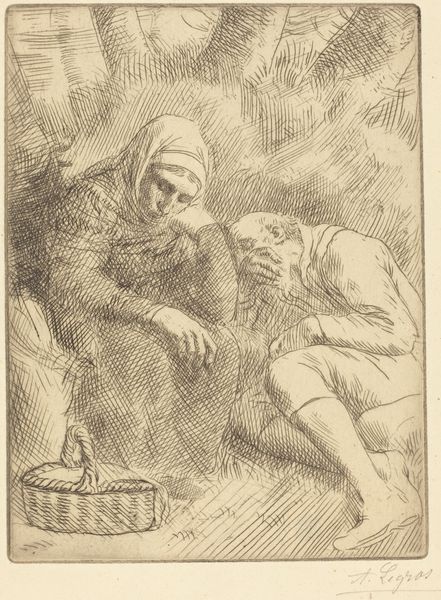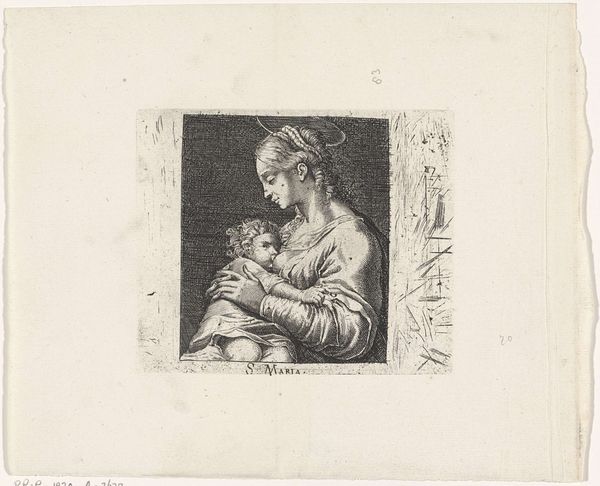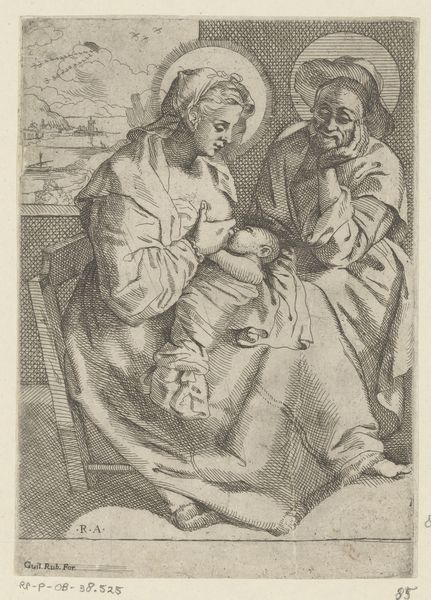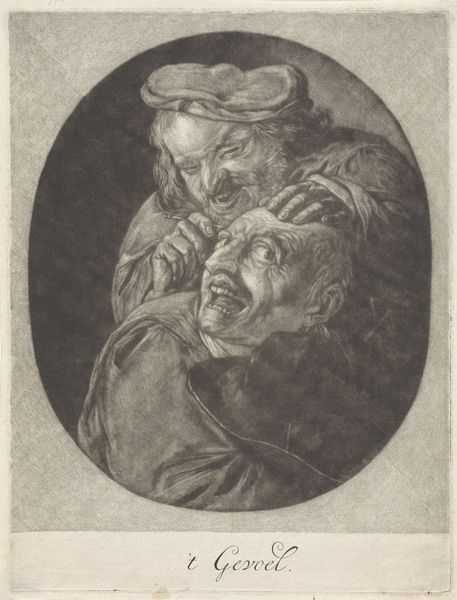
print, etching
#
portrait
#
baroque
# print
#
etching
#
figuration
#
line
#
portrait drawing
#
history-painting
Dimensions: height 143 mm, width 125 mm
Copyright: Rijks Museum: Open Domain
Jacob de Wit created this print, Maria met Christuskind, using etching, a printmaking technique. The image is made by drawing an image into a wax ground on a metal plate, then immersing the plate in acid. The acid bites into the metal where the wax has been removed, creating lines. What's fascinating is how the etched lines define the image. Look at how de Wit uses hatching and cross-hatching to create tone and volume, especially in the folds of Mary's drapery and the plump form of the Christ Child. The density of the lines suggests darker areas, giving a sense of depth and texture. The stark contrast between the lines and the blank paper contributes to the print's visual impact. The etching technique allowed for the relatively easy reproduction of images, making art more accessible to a wider audience. It speaks to a shift in the art world, where the hand of the artist, while still present, becomes mediated by the mechanics of reproduction. It underscores how materials, processes, and their social context are essential for understanding its full meaning, blurring the lines between craft and fine art.
Comments
No comments
Be the first to comment and join the conversation on the ultimate creative platform.
